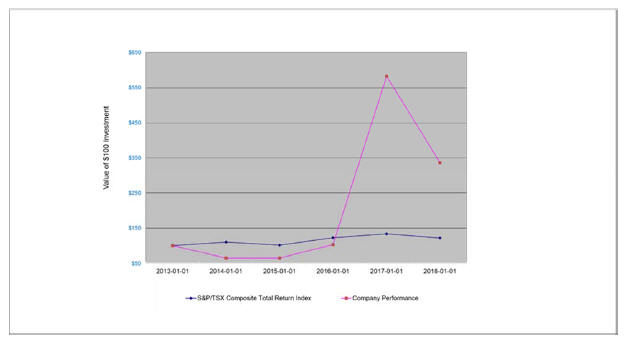Stephen C. Ruffini, Director and Chief Financial Officer of the Company. Mr. Ruffini joined Village Farms Income Fund in January 2009. He joined the Board of Directors of Village Farms International, Inc. in March 2014. From 2001 to 2005, Mr. Ruffini was a Director and Chief Financial Officer of HIT Entertainment, Ltd., which was the preeminent young children’s entertainment company listed on the London Stock Exchange. From 2006 to 2008, he was the Chief Financial Officer of Performing Brands, which was a publicly listed U.S. company in the beverage industry. He was a Tax Manager with Arthur Andersen from 1984 to 1993. Mr. Ruffini has a Masters of Business Administration degree from the University of Texas and a Bachelor of Business Administration degree from Southern Methodist University.
Dr. Roberta Cook, Director of the Company. On July 1, 2016, Dr. Cook retired from her31-year position as a Cooperative Extension Marketing Economist in the Department of Agricultural and Resource Economics (ARE) at the University of California, Davis. She is currently an Emerita faculty member, and consults on a broad range of fresh produce marketing issues. She has a PhD in Agricultural Economics from Michigan State University. She served on the board of directors of Ocean Mist Farms, Naturipe Farms and Sunkist, as well as numerous other advisory boards in the produce industry. For nearly a decade, Dr. Cook was Faculty Director of the California Agribusiness Executive Seminarco-sponsored by University of California, Davis and Wells Fargo Bank. In 2011, The Packer honoured her as one of the top 25 produce industry leaders.
Corporate Cease Trade Orders, Bankruptcies and Court Proceedings
On March 12, 1998, the United States District Judge for the Central District of California entered a Final Consent Judgment of Permanent Injunction, Disgorgement, and Civil Penalty against Mr. Holewinski relating to allegations of insider trading in the securities of Chantal Pharmaceutical Corporation. Mr. Holewinski, without admitting or denying the allegations, consented to a Judgment that permanently enjoined him from future violations of the antifraud provisions of the federal securities laws and ordered Mr. Holewinski to disgorge losses avoided in the amount of US$28,162, plus prejudgment interest in the amount of US$4,921 and to pay a civil penalty in the amount of US$28,162.
SHARE-BASED COMPENSATION PLAN
Background
The Company adopted a compensation plan (the “Compensation Plan”), effective January 1, 2010, on completion of its conversion into a corporation, in order to attract and retain directors, officers, employees and service providers to the Company and to motivate them to advance the interests of the Company by affording them with the opportunity to acquire an equity interest in the Company. The Compensation Plan has been drafted to comply with the policies of the Toronto Stock Exchange (the “TSX”) as they exist at the date of this Information Circular. The Compensation Plan was most recently approved by the Shareholders on June 14, 2018. The following information is intended as a summary of the Compensation Plan.
“Rolling” Maximum Reserve
The TSX permits the adoption of a “rolling” type of share-based compensation plan whereby the number of shares available for issuance under the plan will not be greater than a rolling maximum percentage of the outstanding shares. The Compensation Plan provides that the number of Common Shares reserved for issuance upon the exercise or redemption of awards granted under the Compensation Plan is a rolling maximum of ten percent (10%) of the outstanding Common Shares at any point in time. Currently, the Company has 49,138,003 Common Shares outstanding. Therefore, up to 4,913,800 Common Shares may be reserved for issuance under the Compensation Plan. The purpose of adopting a “rolling” type of share- based compensation plan is to ensure that a sufficient number of Common Shares remain issuable under the Compensation Plan to meet the overall objective of the Compensation Plan. Any exercise, redemption, expiry or lapse of awards will make new grants available under the Compensation Plan effectively resulting in a“re-loading” of the number of awards available to be granted. The Compensation Plan must be approved by shareholders every three years.
- 10 -

